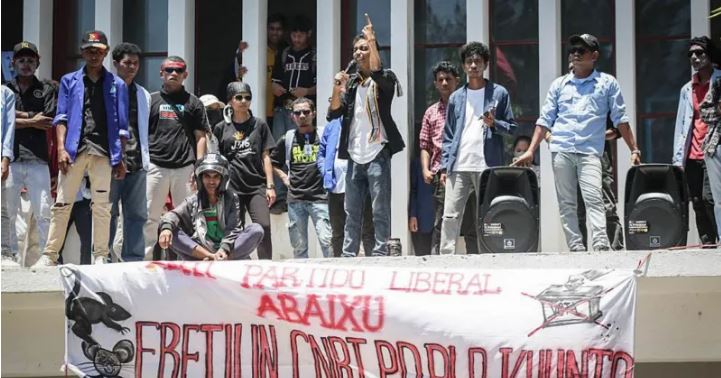Timor-Leste has abandoned a controversial plan to provide free cars to its lawmakers after thousands of protesters took to the streets of the capital, Dili. The demonstrations, which erupted on Tuesday, saw tyres burned and a government vehicle set alight, prompting police to respond with tear gas.
Despite the government’s reversal, protesters returned on Wednesday, with estimates of around 2,000 people participating. While the initial protests targeted the MPs’ car plan, demonstrators are now also demanding the removal of lifetime pensions for retired lawmakers.
One student, who wished to remain anonymous, told the BBC she was hit by tear gas near her university. She criticized lawmakers for “[wanting] to buy luxury cars for work while their people are still suffering.”
Lawmakers in Timor-Leste earn an annual basic salary of $36,000, according to the Inter-Parliamentary Union. This figure is more than ten times the country’s average income, which was reported as $3,000 in 2021.
The plan to buy new Toyota Prado SUVs for the country’s 65 MPs had sparked public outrage before. Cezario Cesar, one of the protest organizers, noted that opposition to free cars has existed since the 2000s. In 2008, students were arrested for protesting against a $1 million plan for MPs’ vehicles.
“We started this protest when they decided to buy the cars,” Cesar said. “People don’t have access to good education, water, or sanitation, yet they are creating laws to benefit themselves. We think it’s injustice.”
While parliamentarians voted unanimously to scrap the new car plan, some protesters remain skeptical. “Rumours are that the cars are already on the way,” said 42-year-old Trinito Gaio. “This is why all of these students and myself are here today, to make sure my tax money is not going in the wrong direction.”
Timor-Leste, with more than 70% of its population under 35, reflects a wider trend across Asia, where young people are increasingly protesting perceived government excesses and inequality.

